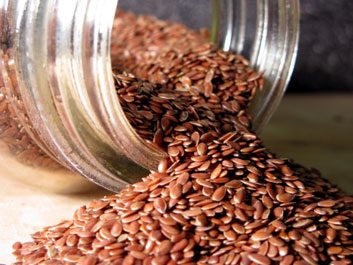
Better survival rates
While 26,500 Canadian men will be diagnosed with prostate cancer this year and 4,000 will die from it, mortality rates have dropped by 50 percent over the past 15 years. “People talk more about their prostates than they used to,” says Dr. Neil Fleshner, professor and chair of the division of urology at the University of Toronto. More awareness and improved treatments are helping reduce mortality rates.

Prostate cancer screening tests
A statement from the U.S. Preventive Services Task Force in 2011 concluded that prostate-specific antigen (PSA) blood tests to screen for prostate cancer do more harm than good. That’s because the PSA often results in false positives, and treatments such as surgery and radiation can lead to incontinence and impotence. Prostate Cancer Canada then released recommendations that suggest a baseline test for men in their 40s, and regular testing (doctors will recommend an interval based on individual risk factors) starting in their 50s.
“I’m a fan of these recommendations,” says Fleshner. He says it is common practice in the U.S. to treat all prostate cancers aggressively, while Canadian doctors have a “wait and see” approach-often monitoring early cancer and treating only if it progresses. Men should talk to their doctor about their risk factors, and combine blood tests with digital exams. Fleshner says men should get a digital exam at their annual checkup after age 40 as it can help detect other medical issues, too.

New drugs offer hope
Not only do we now have five new drugs to help men with late-stage prostate cancer live longer, research is identifying drugs that currently treat other diseases that can also be used for prostate cancer prevention and recurrence. Studies into the type 2 diabetes drug metformin, and the class of heart drugs called statins, are showing promise in slowing the progression of the disease or decreasing mortality risk. “These types of drugs are cheap and readily available, and we have decades of past use to show they’re safe,” says Fleshner.

Foods that reduce risk
Over the past year, studies have linked caffeine, fibre, flaxseed and seaweed to lower prostate cancer risk or recurrence. While these studies are promising, experts would like to see more data on specific nutrients before they are convinced. “It’s important to focus on overall diet more than any single food,” says Andrea Holmes, a registered dietitian with HealthLink BC who specializes in oncology. Larger studies have linked plant-based diets that are high in fibre with both a lower risk for prostate cancer and better outcomes for those who develop it.
Prostate cancer now has a five-year survival rate of at least 96 percent, and that number is set to rise as medical experts better understand how to prevent, diagnose and treat it. “It’s a great time to be a doctor looking after men with prostate cancer,” says Fleshner. “The research is starting to pay off.”
Related:
• Foods that fight prostate cancer
• What to know about prostate cancer screening
• 10 ways to cut your cancer risk
